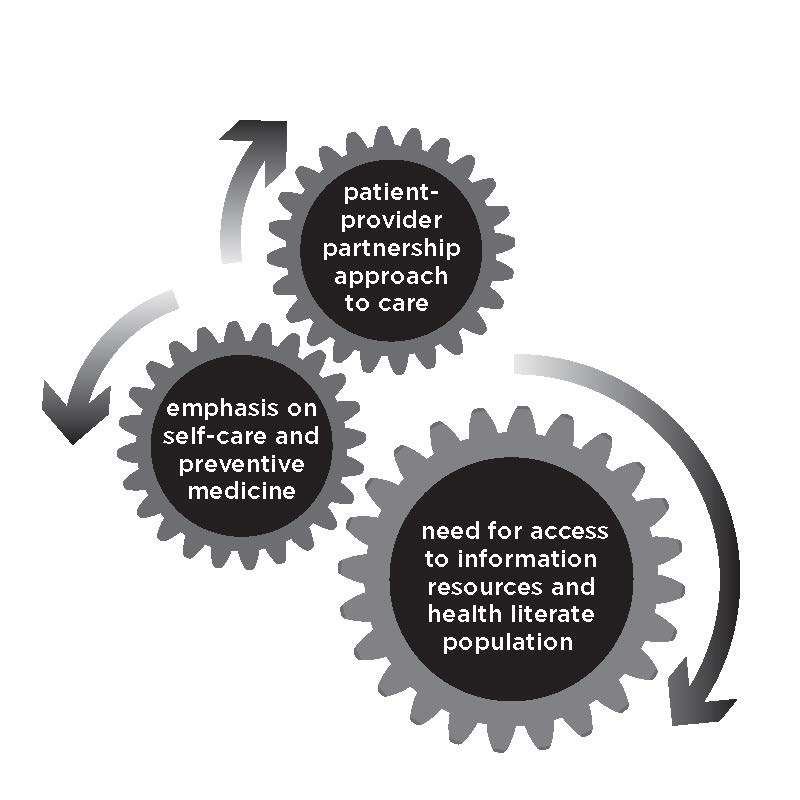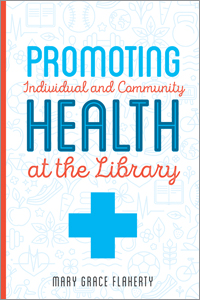Mary Grace Flaherty on promoting health at the library
As trusted guardians of facts and knowledge, libraries play an important role in providing their communities with accurate health information. Furthermore, as Mary Grace Flaherty writes in her new book, taking the initiative to offer health promotion programming is a valuable form of community outreach, serving community needs while increasing visibility. In this interview we discuss the consumer health movement and how it intersects with public libraries.
What inspired you to write this book? Why is this topic so important to you?
I started my library career as a reference librarian at the Johns Hopkins School of Public Health. While I was there, I learned the immeasurable impact of timely, authoritative health information on health care provision and research. Later in my career, as the director of a small public library in rural Upstate New  York, I realized the need for accurate health information was just as important in that setting. I also observed during my tenure as director that public libraries have great potential as community partners. I wrote the book to provide resources and templates, and to highlight and promote the role public libraries play in health initiatives.
York, I realized the need for accurate health information was just as important in that setting. I also observed during my tenure as director that public libraries have great potential as community partners. I wrote the book to provide resources and templates, and to highlight and promote the role public libraries play in health initiatives.
We were really struck by a figure you quoted in the introduction: nearly half of all Americans are estimated to be functionally illiterate in terms of dealing with health care issues. What's the consequence of that for libraries?
As information providers and community resources, libraries are uniquely situated to assist patrons with acquiring and evaluating health information resources, and get many opportunities per year to do so. If we consider libraries as organizations that assist with all types of literacy training, the consequences are two-fold. First, libraries can assist through materials provision, by acquiring current materials and assuring resources are kept up-to-date and available in plain language and at reading levels patrons can understand. They can also guide patrons to credible online resources like MedlinePlus. In addition, they can initiate programs to address specific patron health needs, such as signing up for health care.
The issue of health care, in general, has been so politicized in the last decade. What advice can you offer libraries who want to serve their communities but encounter objections or resistance?
As with any issue that may engender controversy, libraries should approach health care by first considering their community's needs. There are many aspects of health and health promotion that are not political; for example, we know that obesity plays a role in diabetes prevalence, and that exercise can help prevent obesity. If the library is situated in a community with a high rate of diabetes among youth, they may consider offering programs that incorporate physical activity for youth. This way, the library can contribute to addressing health concerns in a transparent manner, and positively respond to community challenges.
For libraries who are ready to collaborate with community organizations, what are some first steps to take?
The first step is to get out into the community and meet the key players in the health arena. These may  include the folks at the local clinic or regional medical center and local governmental agencies, such as the Public Health department and the Recreation and Parks department. The library could host a community forum and invite these key players for an open discussion about addressing pressing health care needs.
include the folks at the local clinic or regional medical center and local governmental agencies, such as the Public Health department and the Recreation and Parks department. The library could host a community forum and invite these key players for an open discussion about addressing pressing health care needs.
Which resources would you recommend for staying up to date with developments in health information, and learning about what other libraries are doing across the country?
The National Library of Medicine's consumer health website, Medlineplus.gov is the best starting place for keeping up to date. The Centers for Disease Control and Prevention also has a wide array of free tools. There are a number of well-established initiatives under way, such as WebJunction's Health Happens in Libraries that provide free resources, and ALA and PLA are also a great place to find support for health programs.
Learn more about ways to promote individual and community health in Flaherty's book, available through the ALA Store.
